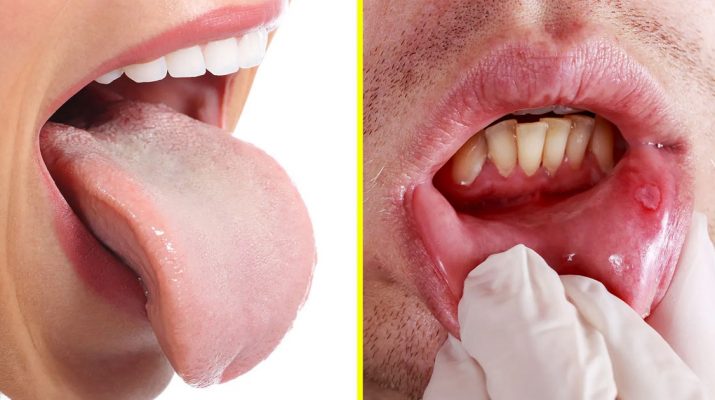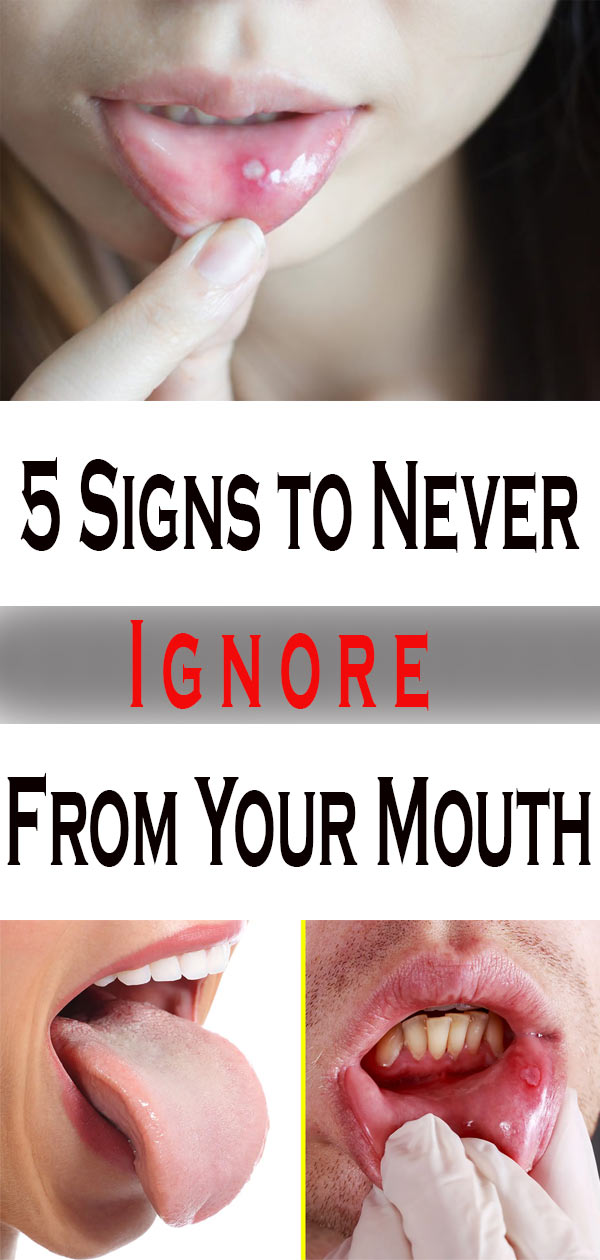In many cases, health problems don’t just show up in localized spots. Their issues and symptoms can spread throughout the body. On one hand, this is fairly irritating and can cause significant discomfort. On the other, it makes it much easier to notice these symptoms, allowing you to catch problems in time to get proper treatment for them. Such is the case with your mouth.
Your mouth is one of those areas on your body that often bears the brunt of symptoms from unrelated disorders. This means that paying attention to your mouth’s health can be crucial for ensuring your body is healthy. Here are some things your mouth can reveal to you about your health, broken down into different regions and issues to pay attention to.
5 Things Your Mouth Can Reveal You About Your Health
1 – Teeth
Many people are conscious of their teeth, especially because a smile is often the first thing people notice in a face. They’re also how we eat and speak easily. So if your teeth seem to be facing some trouble, you may want to pay extra attention to it, especially if its pain involves one of the following areas.
Flat Teeth
If your teeth appear flat along the bottom and seem to be wearing down, then you may be dealing with bruxism – which is the scientific term for grinding your teeth. This is especially likely if you also experience jaw pain and headaches.
It’s important that you see a dentist if you notice signs of bruxism, as this grinding can cause your bones and muscles to become progressively more damaged over time. An increase in stress and a decrease in positive thinking are the most common causes of bruxism.
Cracked Teeth
Many people notice their teeth wearing down and believe it’s just because they grind their teeth a lot or clench them. But cracking teeth, especially if they look like they are starting to crumble, can also be a sign of Gastroesophageal Reflux Disease, known also as GERD.
GERD occurs when your stomach acids are expelled upwards into your mouth, with the acidic liquid then beginning to break down tooth enamel. They may not look like they’re crumbling to you, but exceptionally smooth teeth may also be a sign of GERD as they are worn down over time.
Sensitive Teeth
Many people deal with tooth sensitivity that gets worse when they eat cold or hot things, or, in some cases, sugar. This is, sadly, not a normal situation. It can point to an infection, cavities, fractures, root issues, and more.
2 – Breath
Many people feel embarrassed about having bad breath, so they do their best to cover it up with chewing gum, mint candies, and mouthwash. They religiously brush and floss their teeth and try to avoid smelly foods. But what does it mean if you’ve been doing all of that and you still have persistent bad breath?
Bad breath can actually be a sign of a digestive issue. This is because an overgrowth of the bacteria in the stomach can lead to worsened breath. Kidney and liver issues can lead to this problem, sinus problems, and respiratory disease. If you suspect these conditions, you should see a doctor as soon as possible.
Untreated diabetes is also a common culprit. Diabetics often wind up using ketones in fat for energy because they don’t have the insulin they need to change glucose into energy, and this causes a fruity scent in the mouth.
3. Sores, Spots, Warts, And More
Your mouth is a sensitive location and a lot of different bumps and spots can form within it. Many of these bumps will be harmless, even the ones that hurt or look bad, but some can be a sign of something much more dangerous. Then again, even harmless spots can be a symptom of a more difficult underlying health issue. Here are some kinds of issues to look out for.
Canker Sores
Canker sores, known also as ulcers, often pop up when you’re dealing with hormonal issues, stress, or even a vitamin deficiency. A lack of vitamin B-12, iron, or folic acid can all cause canker sores to form more easily. Then again, canker sores can also form due to allergies, or even around the time of menstruation.
However, some studies have actually linked canker sores to gluten intolerance, because they can be caused by a zinc-deficiency common in those who cannot digest gluten products.
Cold Sores
Cold sores are caused by a strain of herpes: the herpes simplex virus. These sores are typically full of fluid and will need to be left alone for up to 3 weeks to dry up and heal.
Many people panic at the thought of herpes, but most strains of the virus are pretty harmless, so keep your positive thinking. However, cold sores can also indicate that you’re a little under the weather or haven’t been eating the best foods, so take note if you get them very often.
Lesions
Lesions tend to be more serious. If they’re in the very back of your mouth, they could be a symptom of oral cancer. Luckily, this type of cancer is very rare. Meanwhile, lesions under your tongue or on your tonsils can be a sign of HPV. If you notice any lesions at all in your mouth, see a doctor immediately.
Fungus
Fungus developing in your mouth often points to oral thrush, which can be caused by a wide variety of different conditions. It’s safe to say that you should never have any fungus growing anywhere inside your mouth, so speak to a doctor as soon as you can.
Patches
Grayish patches visible on your inner cheek or tongue are usually known as hairy leukoplakia. They are an unusual symptom that typically occurs due to a weak immune system, pointing to a possible autoimmune condition such as HIV. Again, if you notice these patches, speak to a doctor as soon as you can.
Warts
Just like patches, warts in your mouth stem from a bad infection that your immune system failed to fight off. It is very commonly seen in HIV patients, so speak to a doctor as soon as you can if you notice warts inside your mouth.
4. Gums
Gums are tissue that holds your teeth, and they can be a great indicator of overall health. They change color, get sensitive, and are very easy to observe in general when these changes occur. Here are some conditions that you may have based on the state of your gums.
Anemia
Notice that your gums are especially pale? It could be a sign of anemia, a condition whereby your body doesn’t produce enough red blood cells to keep your body at full function. The paleness may be due to insufficient blood flow.
Heart Issues
Mouth bacteria in your gums can cause inflammation. Unfortunately, any bacteria that live in the mouth can easily make its way downwards and into the rest of the body and its bloodstream. Essentially, any gum inflammation is likely also occurring in other parts of your body.
Some types of bacteria can begin to affect blood vessels, potentially leading to heart disease in the long run. Though it sounds like a slippery slope, it’s a concern that many doctors and dentists have. That’s why keeping your gums healthy is so crucial for your whole body.
Diabetes
Diabetes often causes the body’s immune system to suffer, leading to increased infection susceptibility. Plus, the higher blood sugar levels in the body can cause gum disease to become more likely. So if you’re dealing with gum issues, you may want to get checked for this condition.
Hormonal Issues
Your gums are full of hormone receptors. Specifically, they exist in the tissue of your gums. This is why pregnant women often experience gum bleeding, as do those going through menopause. If your gums are sore, sensitive, or bleeding easily, you may have a hormonal problem that you’re not aware of, like thyroid imbalance or PCOS.
Gingivitis
Gingivitis refers to gum disease, and many people don’t take it seriously. But it’s one of the largest causes for tooth loss among adults, and it can open the door to many more infections. So you should consider it a big sign that your health could go downhill.
5. Tongue
Your tongue may be among the strongest muscles in your body, but its surface is still fairly sensitive, allowing you to notice a number of symptoms along it that may indicate an underlying health issue. Here are some of those symptoms.
Fattened Or Reddish Tongue
If your tongue appears to be swollen, shiny, and even fatter than usual, it could be a sign that your body is lacking in certain nutrients. A redness that spreads throughout the mouth indicates that you lack vitamin B6. Isolated beefiness of your tongue means you may be lacking in iron.
Pale Tongue
If your tongue is pale, just like your gums, it could be a sign of anemia. The lack of red blood cells could be causing insufficient blood to pump through your mouth area. A sudden change in color of your tongue should be reason enough to speak to a doctor.
Dry Mouth
Dry mouth and dry tongue are a huge issue that countless people across the world experience. If you experience feelings of dryness in your mouth, it can be a less than a positive sign that something else is going on.
Having a dry mouth means you have less saliva inside it. Saliva works by keeping bacteria away from gums and teeth, which means that when you don’t have enough of it, you’re more prone to infection. Chronically dry mouths can also be a sign of Sjögren’s syndrome, an autoimmune disease.
Final Thoughts On Some Things Your Mouth Can Reveal You About Your Health
Your mouth is what you use to eat. It’s what you use to talk and smile, and laugh. It’s also an easy entrance for bacteria and an easy location for little microorganisms to crawl into and stay. That’s why oral hygiene is so important.
If you notice any of the symptoms we discussed in this article, it would be a good idea for you to speak to a doctor as soon as possible, especially if you’re at risk for certain diseases. Your body will often try to tell you that it’s sick in so many unexpected ways – don’t miss its messages!


